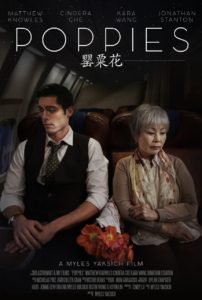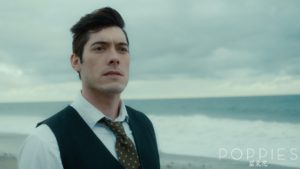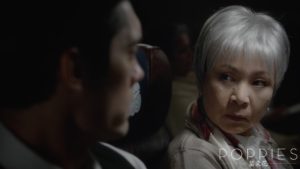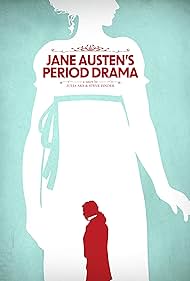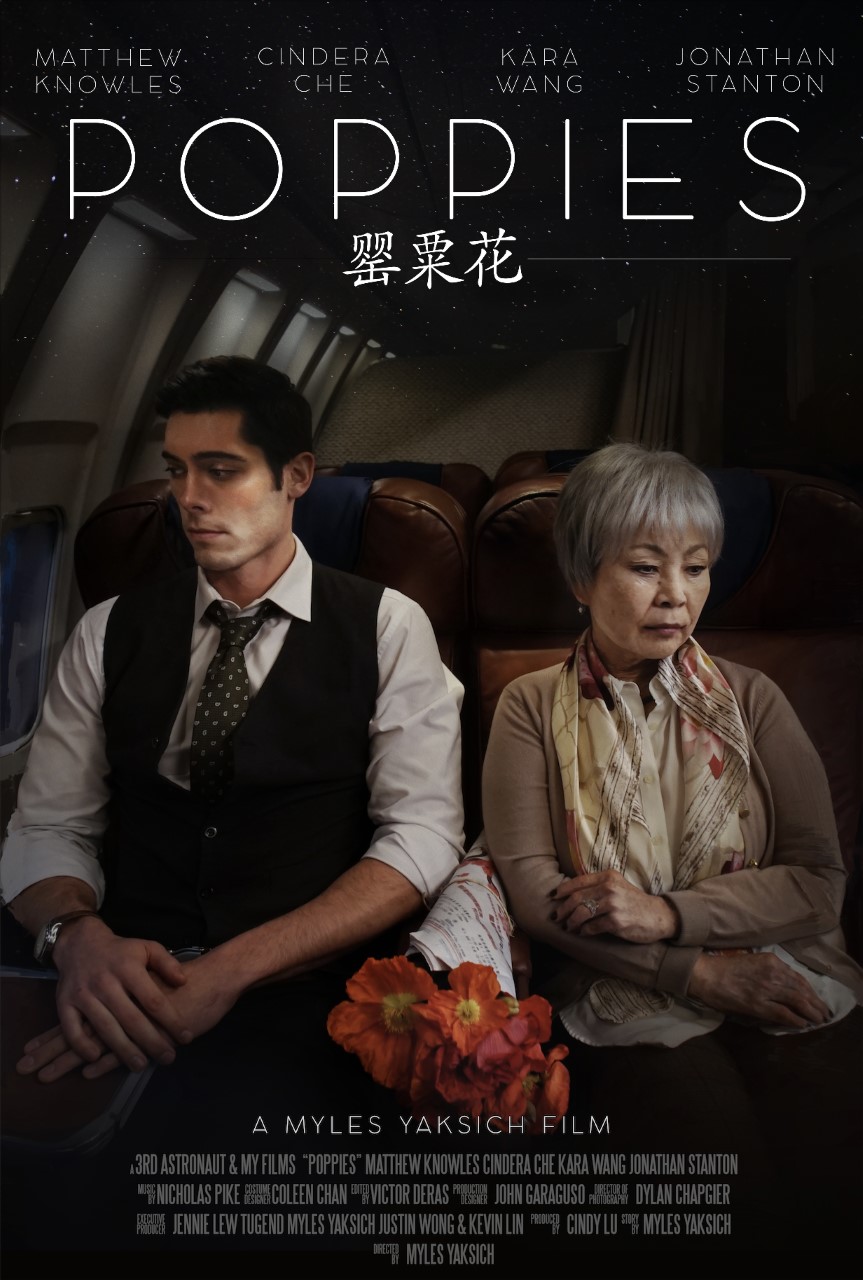
Short Film Review “Poppies”
WATCH THE TRAILER HERE
First, the Recap:
The suppression of disquieting recollections we’ve made every effort to hide away from our mind’s penchant to dwell on that which unsettles us can be an ever-present specter, weighing us down emotionally and mentally when not wishing to deal with the pain. Yet, what makes this fight that much more acute is when the words of another stir it all up, forcing us to face the truths we don’t desire to admit. If and when this occurs, can we manage the courage to face our demons and find freedom? It is a long, ocean-spanning flight upcoming for corporate lawyer Charles Harris (Matthew Knowles), who’s business dealings show no sign of ever letting him find a moment’s rest, despite it all being self-imposed.
Once feeling a semblance of his own concept of “peace” as the flight gets underway, the older Chinese woman sitting next to him, Auntie Ling (Cindera Che) cannot help but notice his aura of distracted, social isolation (and a bouquet of flowers he had brought on board) and commences to engage Charles in a conversation that crosses the breadth of time to the 1940’s as she tells of her epic, exotic, impassioned, and not completely innocent journey of meeting and falling in love with her husband Shu Zhen (Jonathan Stanton), an opium trader in Shanghai. At first mildly interested, then fading into annoyed frustration while trying to bury himself in work, Charles cannot avoid becoming immersed in her story or the revealing light it shines on his own life.
Next, my Mind:
Burning brightly with an aggressively strong, potently grounded, intensely stirring, undeniably human emotional gravitas that builds beautifully from subtle beginnings to ultimate magnitude as the narrative unfolds with wonderfully affecting, purposeful momentum, this twenty-minute short film offering from writer/director/executive producer Myles Yaksich superbly showcases its creator’s prowess and delivers a truly touching, evocative tale about our frailties, the burden of holding onto that which actually cripples us within, the ways we attempt to cover it all over, and the conclusive power of human connection that transcends generations, time, and the circumstances that we allow to control us. It is literally films such as this that continually reaffirm for this critic why, as a whole, independent cinema remains a favored medium, as the character-driven storytelling here carries with it both the fervency of its dramatic impact while entreating the viewer to take in the completely realistic life lessons and significance of its themes to therefore have something to take away and potentially ponder, still having been fully entertained and appreciative of the project as the piece of cinematic art it represents.
The resistance and guards we put up when someone else, especially a complete stranger, “calls us out” on our evident struggles is deftly portrayed, lending that pertinent and necessary air of underlying tension that grows more and more ardent between the two primary characters as time passes, reminding us just how much we do not like to be laid bare when it comes to everything we believe we have under wraps and restrained until we find out we actually don’t and are, admittedly or not, in need of release and wisdom to change. There is likewise the intricacies of generational gaps explored as well, earnestly illustrating how often we virtually repel the sagacity and perceptiveness of someone older than us, most likely out of a misguided thought process that says “oh, their antiquated ways of thinking don’t apply anymore” when in reality, they hold more intelligence and applicable weight than ever. Add to all this being presented the sheer scope of the dominion that deep love enfolds us in, as told by Auntie Ling so eloquently and wholeheartedly while also displaying such blatant transparency about her own past in sharing about it. By the time the film’s finale comes about, it had this critic in tears, and that’s a splendid ode to the well-crafted poignancy found in this film.
One of the next treasures to be found in this film is Knowles, who epitomizes the captivating resonance an accomplished actor can achieve through his beautifully understated, yet quietly energetic, emotively expressive performance as Charles, a vibrant, young, and overly driven man whose work has very much become his actual master, despite the vague idea we get at first that there is someone special waiting for him back in the U.S., evidenced by the flowers he bears. But, even as he attempts to settle into his seat while still engaged in a phone call regarding work, the real loneliness he contains within himself begins to seep through, causing his seat mate, Auntie Ling, to start making her own tries to maneuver him out of his closed-off, isolated island via telling him about her own past while smartly being able to utilize the poppies she saw him with as an additional piece of connective tissue that ends up binding both of their worlds together, even though Charles’ frustrations at being “exposed” come out at one point. Yet, we see how deeply impactful the encounter ends up being, and by the time the flight is over, Charles makes a choice that greatly moves Auntie Ling and shows that he was listening and engrossed by the open candidness of her tale, much less the imagery and convictions it brought about from the depths of his own heart, mind, and soul. All of it is enacted exceptionally by Knowles.
Not to remotely be outdone or undervalued, veteran actress Che brings about an equally urgent, magnificently haunting performance in her role as Auntie Ling, a highly unassuming elderly Chinese woman whom Charles’ seat happens to end up next to. Even as their initial chit chat, intermixing both English and Chinese thanks to Charles’ need to know both while working in Shanghai, it seems like the typical fleeting interactions between strangers on a plane that will quickly fade to each keeping to themselves. However, as events unfold, Auntie Ling’s interest in, and possibly heartbreak for, Charles begins to take hold. Soon, she is sharing about the great love of her life, how they met, and other facets of how life brings about the elements of happiness and sadness, with her recollections and passion about her husband acting as an indirect and fully applicable foil to Charles’ finding his identity in work and not realizing, much less acknowledging, his own inner hurt and need for release. Even as Auntie Ling is confronted with his building annoyance in distracting him from his work, the pure reverie her stories elicit cause her to reveal sides of her, both past and present, that greatly sway and overwhelm his exasperation to replace it with compassion and understanding. It is a magical performance, so believable and formidably heartbreaking and heartwarming and the same time.
Supporting turns are aplenty, one of the primary ones arriving from Stanton as Auntie Ling’s husband Shu Zhen, whom we see entirely in flashback to illustrate the fiery desire the pair shared in their youth, while both having involvements in businesses of ill repute. Kara Wang plays a flight attendant whose presence becomes a brief part of Ling’s reminiscing about the past, Yadira Pascault Orozco portrays an important figure from Charles’ hidden away past, Eric Jayden gives us Charles as a child, and Ewan Chung does voice over for Shu Zhen. Other appearances made here to aid in Ling’s 1940’s backstory include Albert Chang, Gelbert Coloma, Jeffrey Gibson, Cat Lee, Brandon Lim, Cat Navarro Lee, Walter Tabayoyong, Yasmine Tanres, and Shudan Wang, while Gabriel Bellotti, Joseph Evangelista, Corrina Lee, Aaron Louie, Varunn Pandya, Yeng Kong Thao, and Frank Ellis Wells play additional flight passengers. Also, Jamie C.X. Wang plays Auntie Ling’s nurse.
With its gorgeously shot visuals, riveting music score, weighty, inspired character drama and touching thematic potency via a story that so acutely bridges the gap of time and age to execute an emotionally-charged hit to the soul, “Poppies” is a fine, fine example of what indie film keeps striving to unveil to the greater moviegoing audience–the raw spirit and commitment these filmmakers have to allow their narratives to make profound statements about us as human beings while providing a different level of entertainment that so wonderfully transcends the mainstream.
As always, this is all for your consideration and comment. Until next time, thank you for reading!
